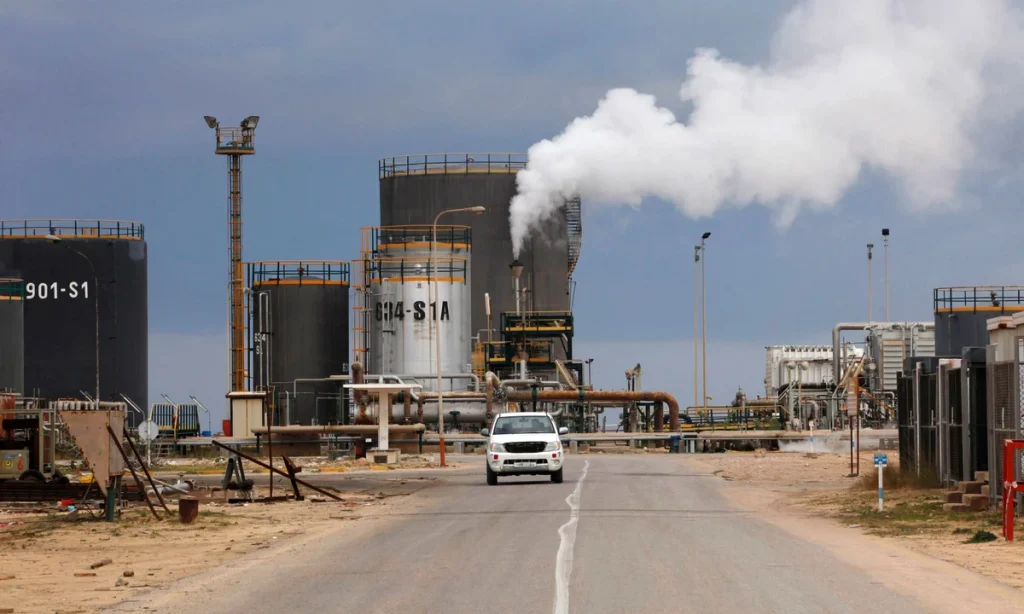Libya’s oil production has plummeted by more than half, with about 700,000 barrels per day (bpd) offline as of Thursday. The sharp decline is a result of a standoff between rival political factions over control of the Central Bank of Libya and oil revenue, a situation that threatens to destabilise the country after four years of relative peace.
The conflict, centered on control of Libya’s Central Bank, has significantly impacted the oil fields controlled by Waha Oil Company, a subsidiary of the National Oil Corporation. Production there has dropped to 150,000 bpd from 280,000 bpd, with engineers expecting further reductions. Operations have also halted or decreased at the Sharara, Sarir, Abu Attifel, Amal, and Nafoora oil fields.
This disruption in oil production has removed around 700,000 bpd of oil from Libya’s total output, which was approximately 1.18 million bpd in July. According to Rapidan Energy Group, production losses could reach between 900,000 and 1 million bpd, with the crisis potentially lasting for several weeks.
The political deadlock stems from eastern factions’ demands for the return of Central Bank Governor Sadiq Al-Kabir, after his dismissal by the internationally recognised Presidency Council in Tripoli. This move has been rejected by the eastern-based House of Representatives and forces loyal to Commander Khalifa Haftar.
Libya, a key oil producer in North Africa, has been plagued by instability since the 2011 NATO-backed ouster of long-time leader Muammar Gaddafi. The current east-west split among rival factions dates back to 2014, with oil blockades often used as a political tool in the years of chaos that followed.
While some local shutdowns have been resolved quickly, larger blockades tied to major political or military disputes, such as the one led by Haftar in 2020, have lasted for months.

